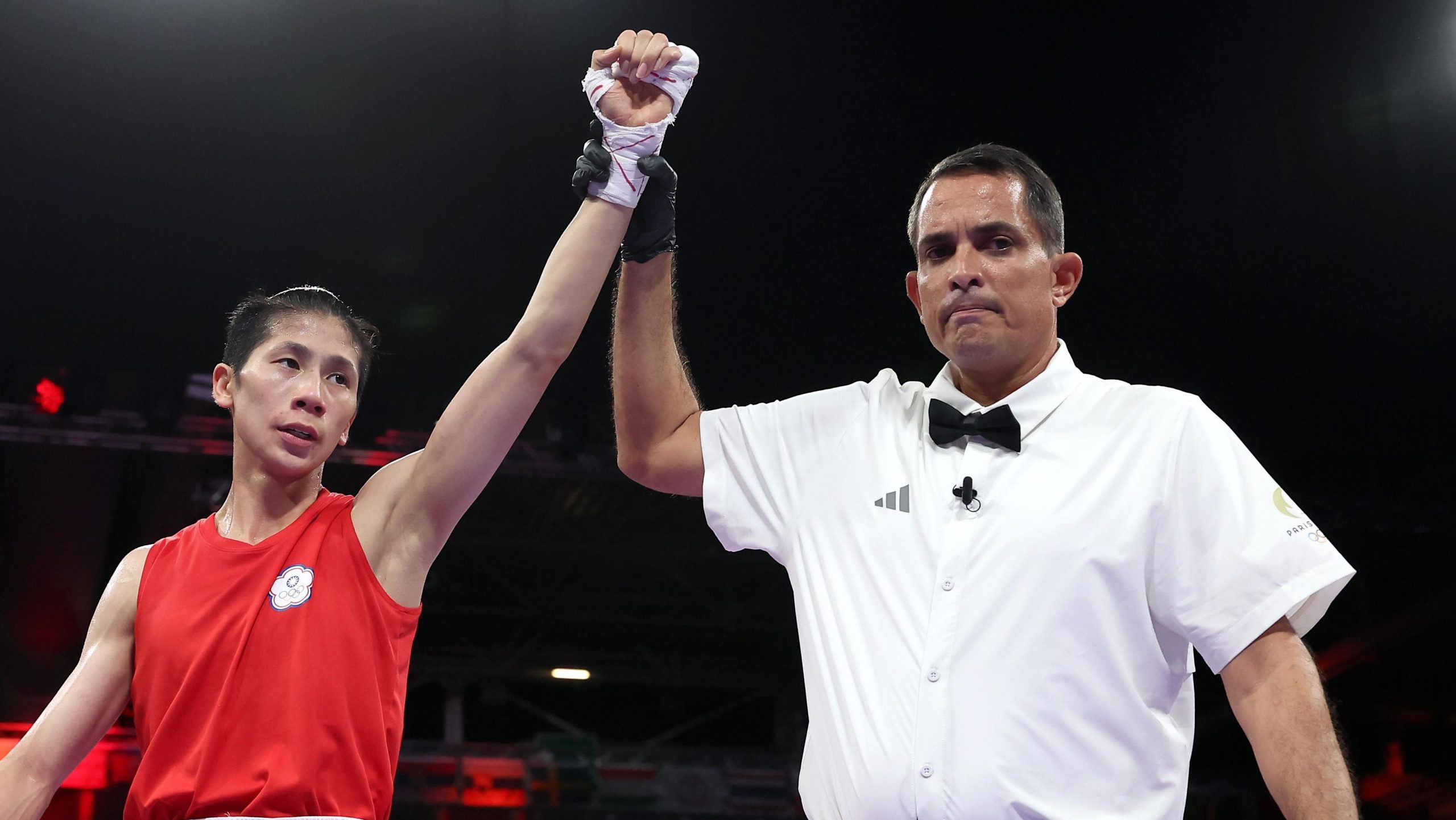Taiwanese boxer Lin Yu-ting, whose inclusion at the Paris Olympics has sparked controversy after she was reported to have failed a gender test last year, won her first bout of the Games in the women’s division.
Lin – like Algerian Imane Khelif, who progressed on Thursday – was banned by the International Boxing Association (IBA) but has been allowed to compete at the Olympics, which are run by the International Olympic Committee (IOC).
The 28-year-old entered the arena to cheers, which were followed by some boos, before beating Sitora Turdibekova in the 57kg category.
The pair shook hands briefly after the bout but did not after the result was confirmed.
Turdibekova left the arena in tears and did not stop to speak to the media. She and her team quickly left the venue.
Lin stopped briefly, but did not answer a question.
The controversy has engulfed the Olympics after Italy’s Angela Carini withdrew from her bout with Khelif on Thursday, saying: “I had to preserve my life.”
Whereas Khelif’s bout lasted just 46 seconds, this went the full three rounds – with Lin victorious by unanimous decision.
Only one of the five judges awarded a round to Uzbekistan’s Turdibekova.
Lin, who now has a career record of 41 wins and 14 defeats, is a three-time World Championship medallist and two-time Asian champion. Turdibekova, aged 22, was competing at her first Olympics.
The IBA has said Lin and Khelif were banned “to uphold the level of fairness and utmost integrity of the competition”. Lin was stripped of a bronze medal at last year’s World Championships.
Last June, the IBA – a Russian-led body – was stripped of its status as the sport’s world governing body by the IOC.
The IOC, which defines gender by how it is recorded on an athlete’s passport, said the pair were “suddenly disqualified without any due process”.
“The question you have to ask yourself is ‘are these athletes women?’,” spokesperson Mark Adams said prior to Friday’s fight.
“The answer is ‘yes’. According to their eligibility, their passports, their history. A test which may have happened – a made-up test which was new – should not be given credence.”
The IBA, however, defines gender differently.
It defines a woman, female or girl as “an individual with chromosome XX” and men, males or boys as “an individual with chromosome XY”.
IBA chief executive Chris Roberts told BBC sports editor Dan Roan tests were completed after “there was ongoing concerns that were picked up by our medical committee”.
















